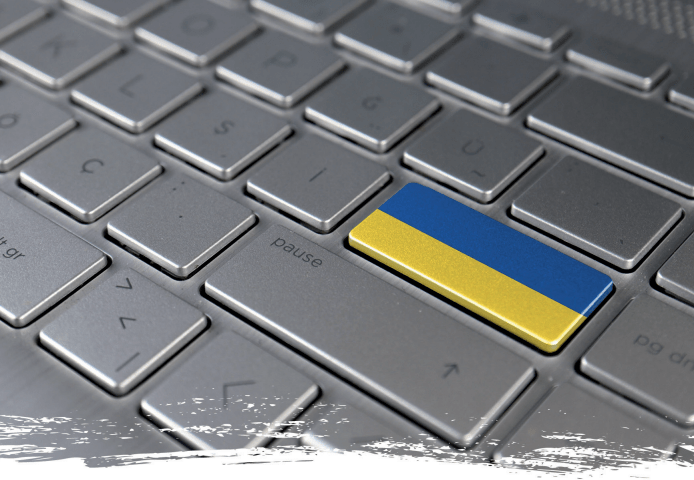Cyprus media coverage of the war in Ukraine
What it reveals about Cyprus and its media
On 24 February 2022, Russia launched a full-scale invasion of Ukraine, marking the start of the biggest war in Europe since the Second World War.
- Nicholas Karides
- Institute for Mass Media – Friedrich Naumann Foundation for Freedom
- Institute for Mass Media – Universitas Foundation
 In the summer of 2023, the Institute for Mass Media undertook a project supported by the Friedrich Naumann Foundation to examine how the media in the areas under the control of the Republic of Cyprus, covered the early stages of the war which, at the time the study went to print, was still raging…
In the summer of 2023, the Institute for Mass Media undertook a project supported by the Friedrich Naumann Foundation to examine how the media in the areas under the control of the Republic of Cyprus, covered the early stages of the war which, at the time the study went to print, was still raging…
The purpose was to attempt to capture the main elements of the coverage, how their content and tone were particular to Cyprus’ broader political and economic context and to better understand how the public perceived and responded to the developments. Ultimately it was also an attempt to comprehend what the coverage revealed about the state of the country’s media eco-system.
The study scans selected media from the online, print and audio-visual sectors and offers an overview of the coverage highlighting the key aspects of the reporting to which the Cypriot public was exposed. It attempts to discern whether this exposure reflected and reinforced a particular way of seeing and reporting resulting from factors and circumstances that came together when the invasion took place in February 2022. It then tries to explain what this reveals about its information space and the overall state of the media landscape.
It must be made clear that this is not an academic paper; the study did not engage in a process of analyzing data nor was it based on any prevailing theoretical premise. But while it may not be comprehensive, it is an in-depth qualitative assessment based on examining the context and background of the Cypriot media landscape through reviewing the literature and media output and, more tellingly, through extensive conversations with journalists, both senior and junior, academics, diplomats and experts.
The conversations explored editorial decision-making processes or their absence as well as the adequacy of historical and journalistic knowledge of the relevant situation. The study identified the choices and focus of the reporting, explored any sense of self-censorship or even self-criticism, and considered the sources of information and centres of influence and their effect.
Exposure to media coverage affects the public’s collective mind, a society’s world view and its response to the world. This happens through exposure to the media’s choice of focus, choice of headlines, its use of emotive phrases, the slant of the reports and editorials over sustained periods of time especially during conflicts, the positioning of related reports whether on the front-page or their placement in the inside pages, or their complete omission.
The absence of impartial quality journalism and of media plurality result in inadequate, incomplete and unchallenged news outputs and undermines the critical information needs of societies and the debates that they must have.
It also lulls the public into accepting news content without examining or disputing the sources and their motives. Over time groups and communities internalize that exposure and develop a commitment to their resulting assumptions. Individual citizens operating in this context are then called to make specific political choices.
The state of politics in much of the world today is to a large degree a result of this malfunction…
- The Report can be downloaded HERE
